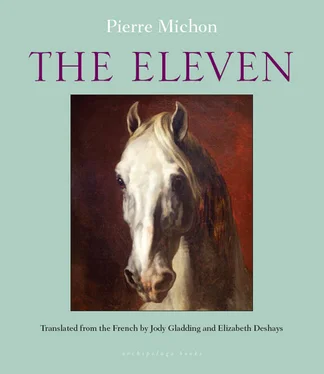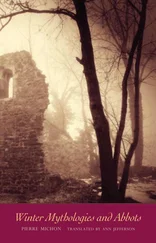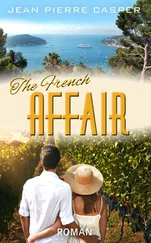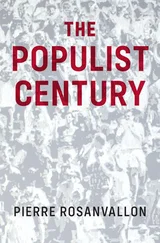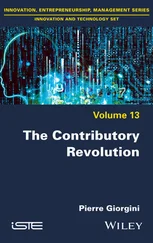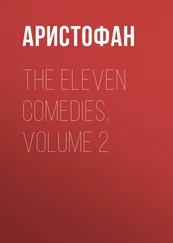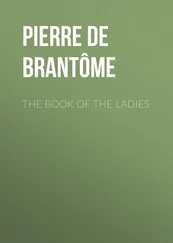For him, then — and in a certain way he truly earned them — the lily and the roses.
For him in the same stroke the paternity of François-Élie Corentin, the Tiepolo of the Terror, who came to paint The Eleven .
Can you see them, Sir? All eleven of them, from left to right: Billaud, Carnot, Prieur, Prieur, Couthon, Robespierre, Collot, Barère, Lindet, Saint-Just, Saint-André. Unchanging and erect. The Commissioners. The Great Committee of the Great Terror. Four point thirty by three meters, a bit less than three. The Ventôse painting. So improbable, the painting that had every reason not to be, that so well could, should not have been, that standing before it we shudder to think that it might not have been, we appreciate the extraordinary luck of History and of Corentin. We shudder as if we ourselves were in the pocket of luck. The painting — painted by the hand of Providence, as would have been said a hundred years earlier, as indeed Robespierre said again at the home of Mother Duplay as if he had been in Port-Royal. A painting of men at a time when paintings were of Virtues. A very simple painting without the shadow of an abstract complication. A painting that the madmen of the Hôtel de Ville, members of the Commune, ordered on an impulse and perhaps drunk, the fierce children with the great pikes, the Limousin tribunes, a painting — that Robespierre did not want at any price, that the others hardly wanted, that maybe ten out of eleven did not want ( Are we tyrants, that our Images be worshipped in the abhorred palace of tyrants? ), but which was ordered, paid for, and made. Because even Robespierre feared the Hôtel de Ville; because History has a pocket for luck in its belt, a special purse to pay for impossible things. Can you see them? It is hard to see them all in one glance now, with those reflections from the glass behind which they’ve been placed in the Louvre. Proof against bullets, proof against the breath of ten thousand people from all over the world who look at them each day. But there they are. Unchanging and erect.
And here is their author.
He is running down the steps of the Combleux house, the château, his blond curls flying, and you can hear the clear voice of his mother inside calling him, already worried about him escaping from under her skirts. My treasure! It is a fine day and he is beautiful as the day, as a girl, he is laughing and is not yet ten years old. My God, it really is him, the one who will resemble Simon the cobbler and whom Diderot will jokingly call that old crocodile François-Élie. Alas, it really is him. There is his mother already on the steps in her enormous skirts, the big basket as it is called in Manon Lescaut , or the flying dress as painted by Watteau: even more beautiful than before, blondness itself, in full golden bloom, hands like golden bread. And three steps behind her, the grandmother, nervous, adoring, fearful, blond, who seems very small now because her pattering heart has worn her down. The child runs toward the Loire, the canal, and they run after him gathering up their big basket skirts, how funny they are, what fun he makes of them. How he loves to tire them out, and how at the same time they exasperate him — and how unhappy it makes him to enjoy their suffering. I do not see the father.
It is well known that most of the time François Corentin was not there. The thousand biographers upon whom I freely draw have a very hard time making him appear in Combleux; and I do not dare draw upon the gentle romancers who show him in wig and white stockings, having released the child for a few hours from the devouring love of the women, holding him by the hand and heading off with him over there under the willows toward Chécy, naming the trees for him, the boats, the authors; naming for him the laws among which the Great Being frolics with his creatures, the mechanics of the flight of celestial bodies, the impassioned fall of earthly bodies, which are inexplicably but admirably the same law; unwinding for him the whole white thread of the thought of his century. I do not dare draw upon those gentle romancers who want to make Corentin a philosopher painter, educated by his father. Because in truth they saw little of one another, and far from the white thread of thought, the child lived between two women who devoured him with love.
This you know: the father, the young poet of the Church, cast off the tutelage of the Church to get married, as frequently happened then; to get married because the girl was beautiful and rich; and not himself being one of those priests with benefices and noble names who were then the masters of the world and consequently of women, but a Limousin lost beneath the little collar, wealthy but no more, to enjoy the girl he had to marry her. So he walked out on the Church to get married; but also to pursue full-time the occupation of being a man, or rather what a man’s occupation was in the byzantine mind of a disguised Limousin. Literature, Sir. Because that was the age when faith in literature was beginning to supplant the other grand old faith, to relegate it to its small historic space and time, the olive groves of the Jordan, the reign of Tiberius, and to claim that it was in its own space, the pages of romances, anacreontic rhymes, that the universal deigned to appear. God was switching nests, as it were. And François Corentin was one of the first to realize it, by which I mean that he was part of the earliest generations of men who realized it, no, not with the intellect or through cunning or calculation, but with the heart that does not believe itself to be calculating, even if in its exaltations it is more calculating than the illiterate horse sense of a thousand villainous old wine merchants. François Corentin numbered among those writers who were beginning to say, and surely to think, that the writer served some purpose, that he was not what he was believed to have been until then; that he was not that exquisite superfluity at the service of the Great, that resonant, gallant, epic frivolity to be drawn from the sleeve of a king and exhibited for scantily dressed young girls in Saint-Cyr or the Parc-aux-Cerfs; not a castrato or a juggler; not a beautiful sparkling object set in the crown of princes; not a procuress, not a chamberlain of the word, not a steward of pleasures; not any of those things but a way of thinking — a powerful mix of sensibility and reason to throw into the universal human dough to make it rise, a multiplier of man, a force for man’s growth like the retorts for gold and the stills for wine, a powerful machine to increase man’s happiness. This ferment is known as the writers of the Enlightenment, as you have said, Sir. And they really were on the side of light, even and especially if they had the painful certainty of emerging mole-like from a gloomy cellar: because whatever the original illusion or imposture, the riggings for putting God into the nest their pages were preparing for him, the Limousin appetite that kept them standing, they were, in their own way, the salt of the earth. They were, in their own way, the leavening they wanted to be: because they had succeeded in transmuting the Limousin appetite within themselves, as if magically but no less authentically, into generosity.
So Corentin was part of all this: the Enlightenment, the salt of the earth, the great appetite become an appetite for giving. And to leave the Church, to possess Suzanne, he professed in good faith what was beginning to be called in lay terms a vocation. The word in this world, and in particular the written word, was crushing him; so he embraced a state in which the power of the word was more efficient, perhaps more absolute, than in that of teacher or priest, to which he was destined — that of a man of letters. And the men of letters were in Paris. Thus, hardly had he enjoyed the girl, hardly had he gratified her with the child, this treasure of blond curls who comes hurtling down the steps, than he went where his state called him, to Paris.
Читать дальше
